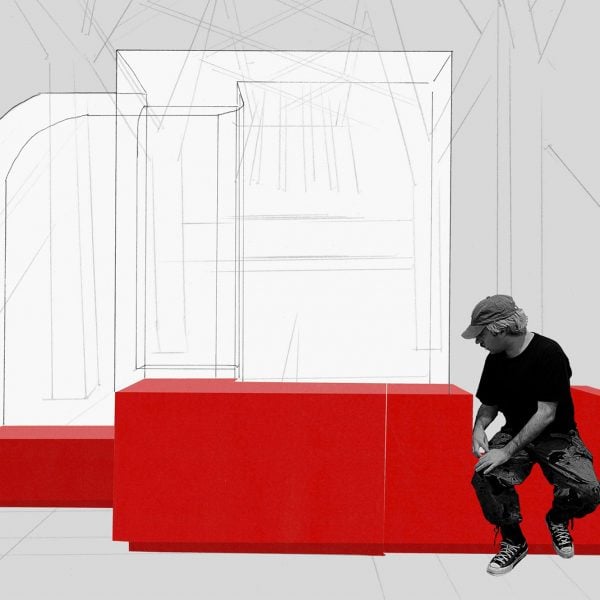Dezeen School Shows: a pharmaceutical app which integrates Eastern and Western healthcare approaches and designed using AI is included in Dezeen’s latest school show by students at Swinburne University of Technology.
Also included is an adaptive reuse proposal for a waterfront in Melbourne, Australia, and a textiles project utilising recycled yarn.
Institution: Swinburne University of Technology
School: School of Design and Architecture
Course: Multi-disciplinary
Tutors: Dr Jane Connory, Deputy Chair of Communication Design
School statement:
“Swinburne continues to be recognised as having one of the best design schools in the world by the 2018 QS World University Rankings by Subject.
“Ranked at equal number 40 for Art and Design, Swinburne has improved by more than 10 places since 2017.
“Swinburne’s ongoing success stems from initiatives such as The Design Factory Melbourne, in partnership with the Global Design Network.”
Type Fair PH by Glocielle Nera
With the diverse history of typography design in the Philippines, this motion response aims to introduce Type Fair PH as a bright and creative local event that celebrates the rich culture of Filipino design and typography.
“As you watch, you’ll see that typography is used to mention the activities but also as graphic elements showcasing unique styles from sans serifs to decorative to blackletter and more.
“Iconic Filipino elements are also present such as jeepneys and jeepney signage, Rizal Park – an iconic local urban park – along with the use of flowers and leaves, a sentiment towards the Philippines’ rich biodiversity.
“The video successfully encapsulated the theme: diversity and creativity through typography and design, made proud with local Filipino talent.”
Student: Glocielle Nera
Course: Communication Design and Motion Design
Tutor: Lucas Licata
Email: glocielle.nera[at]gmail.com
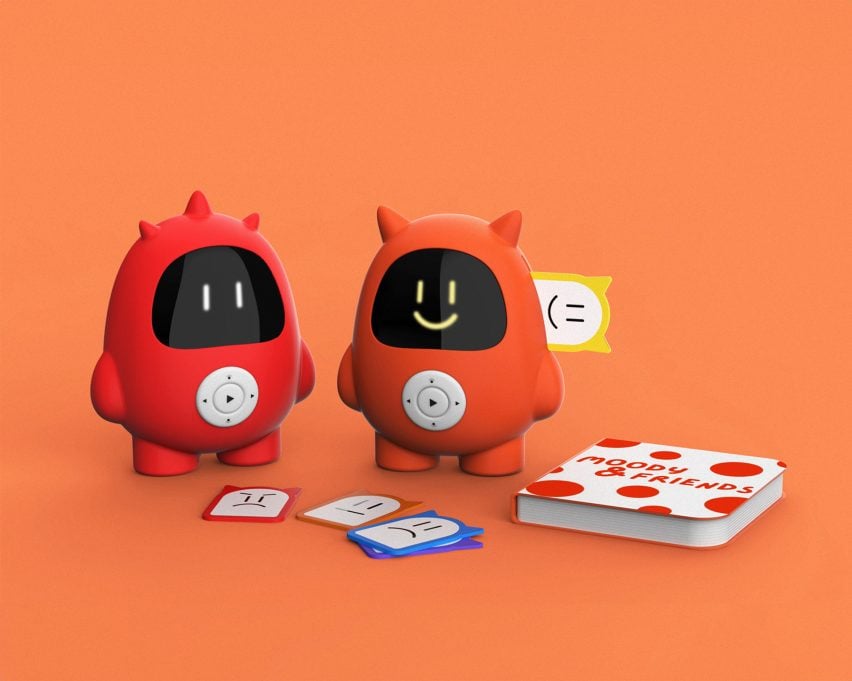
Moody by Gayathri Krishna
Moody is an electronic toy designed to enhance parent-child interaction while teaching children aged three to eight about emotions and empathy.
“Accompanied by the ‘Moody and Friends’ storybooks, it engages kids in recognising and understanding emotions by prompting them to match characters’ feelings with RFID-enabled emotion cards.
“Moody provides immediate feedback by glowing with corresponding expressions, making learning intuitive and fun.
“Moody’s blend of co-operative play and meaningful parent-child interaction nurtures emotional education, making it a valuable tool for bonding and holistic child development.”
Student: Gayathri Krishna
Course: Bachelor of Design (Industrial Design) with Honours
Tutors: Nicholas Chia and Charles Ranscombe
Email: 103167937[at]student.swin.edu.au
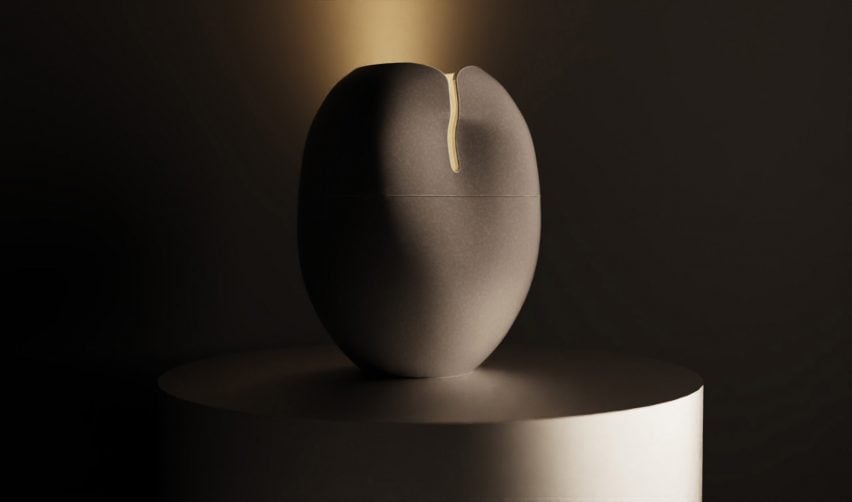
Thousand Winds by Savannah Knott
“Thousand Winds is a new way to honour those who have passed, promoting sustainable cremation by creating an emotionally grounded, meaningful vessel for containing ashes.
“At each anniversary the top of the vessel is removed and a candle is placed within.
“As the candle burns the light escapes through the small gap on the side projecting light outwards.
“The vessel is made from ceramics providing a soft and delicate feeling to the product.
“Thousand Winds also includes a website for memory sharing.”
Student: Savannah Knott
Course: Swinburne’s School of Design and Architecture
Tutors: Nicholas Chia and Charles Ranscombe
Email: nottsavannahl[at]gmail.com
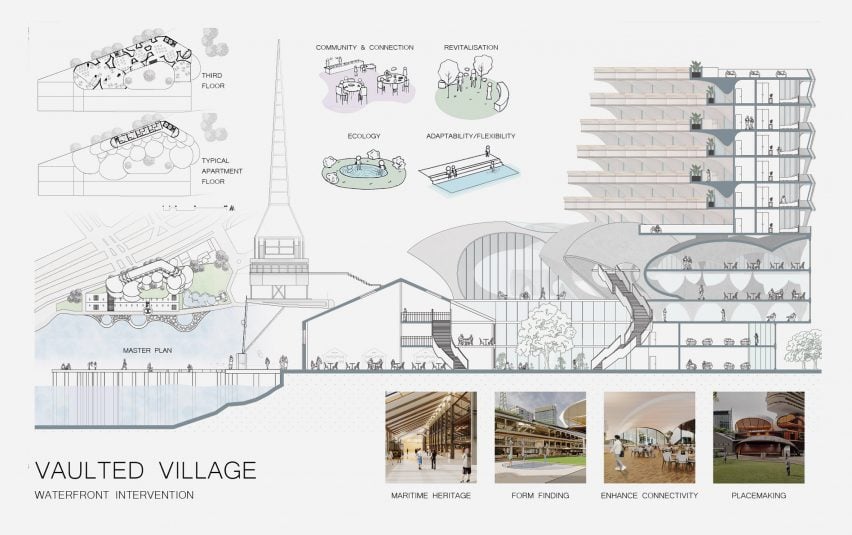
Vaulted Village (Waterfront intervention and adaptive reuse proposal) by Daniel Zeleznik-Pina, Natarin ‘Cherry’ Jamsai and Ding Khoo
“Vaulted Village is an adaptive reuse proposal for a waterfront intervention and student accommodation project in Docklands, Melbourne.
“The project aims to enhance connectivity and foster community among residents, locals and visitors by preserving the site’s maritime heritage and revitalising the area.
“The Grafted-Hybrid style approach extends the South Promenade to the site, converting Goods Shed Number Five into a market, with the three levels above the market dedicated to student-focused study and social areas, bridging the gap between residents and the public.
The project supports ecological efforts to clean the Birrarung (Yarra) River by integrating the river’s water into the building‘s systems.
“This project was designed by Daniel Zeleznik-Pina, Natarin ‘Cherry’ Jamsai, Ding Khoo led by Joel Collins and Dr. Yalda Sourani.”
Students: Daniel Zeleznik-Pina, Natarin ‘Cherry’ Jamsai and Ding Khoo
Course: Bachelor of Design Architecture
Tutors: Joel Collins, co-led by Dr Yalda Sourani
Emails: danielzeleznik9[at]gmail.com and cherryjamsai[at]hotmail.com

Trash4Treasure by Joshua David
“Trash4Treasure was a marketing campaign created specifically to inform, educate and promote the CDS (Container Deposit Scheme) to Victorian children so that everyone is playing their role in ensuring Victoria is a cleaner and greener state.
The approach was to create a fun and engaging campaign that will allow more kids to participate in earning some pocket money for completing a good deed for the community.
“The website had 1,100 event counts, 117 total users and 200 total views on the homepage from 70 users; while the social media reach included 3,228 Instagram profile impressions, 1,159 Facebook users reached from posts and 1,962 X post impressions; while the 12 EDM campaigns had a 45.5 per cent average open rate and 20 subscribers within the first week.”
Student: Joshua David
Course: Web Marketing and Advanced Usability
Tutor: Dylan Davis
Email: josh05david[at]gmail.com
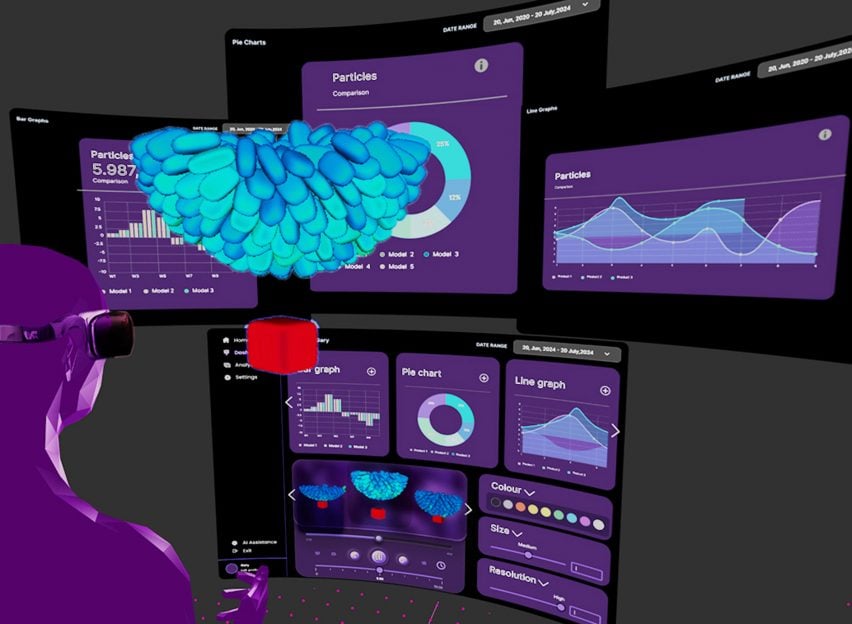
CSIRO’s AI4Design: Enhancing Intelligent Digital Twin Fidelity and Utility through Immersive AI and Human Computer Interaction by Danni Liu
“This project proposes to develop an AI-powered immersive workbench prototype applied as part of CSIRO’s (Commonwealth Scientific and Industrial Research Organisation) state of the art AI4Design pipeline.
“This will provide a unique window into complex design problems integrating diverse representations from combinations of computational simulation models, real world live experimental data and AI-driven generative design within an Intelligent Digital Twin (IDT) framework.
“Key features of our AI-powered immersive workbench prototype include embedded 3D simulation models, AI-driven analytical visualisations and intuitive interactions within a mixed reality environment; enabling complex data manipulation operations and insights in real time.
“It will enable seamless analysis, interaction and refinement of the optimal control parameters within the IDT, ultimately leading to more accurate and informed decision-making.
“Our results will have wide-reaching applications, significantly impacting on multiple scientific research domains, driving innovation and accelerating scientific discovery.”
Student: Danni Liu
Course: Doctor of Philosophy (Design), Department of Computing Technologies and and Department of Communication Design
Tutors: Dr Rui Wang (CSIRO Data61, Senior Research Scientist), Dr Gary Delaney (CSIRO Data61, Research Director), Professor Jun Zhang and Dr Jane Connory (Deputy Chair of Communication Design at Swinburne University of Technology)
Email: danniliu[at]swin.edu.au
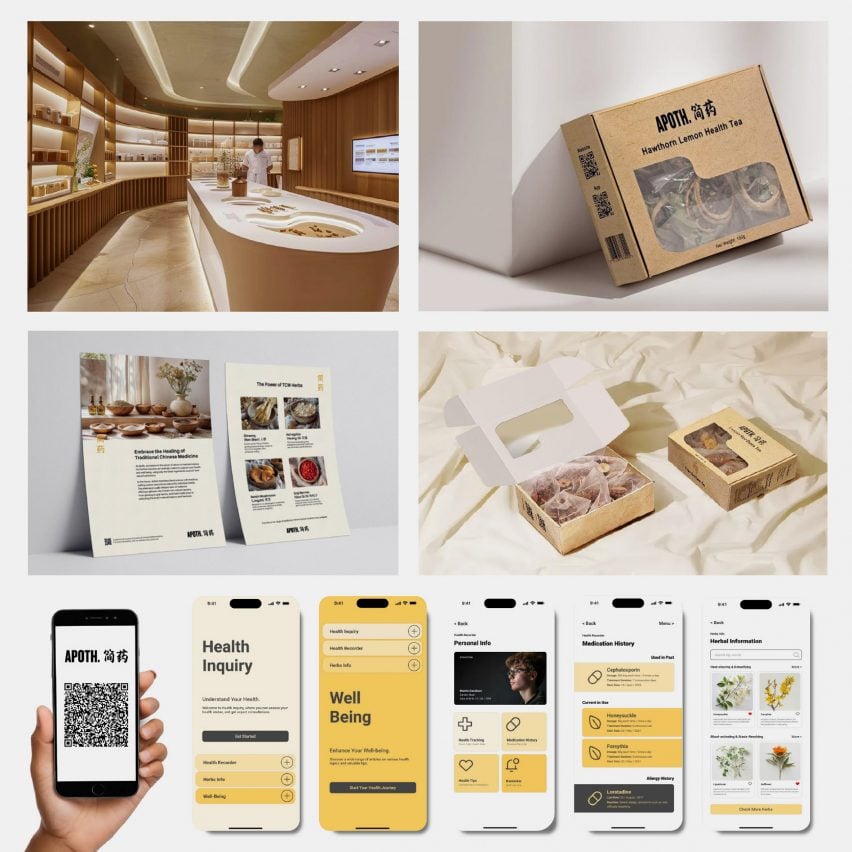
The Herbal Pharmacy: Apoth 简药 by Cheng-Yu Wu, Chalita Chayakul, Kainan Huang, Chi Luu and Zhichen Dong
“The herbal pharmacy project explores the integration of Eastern and Western healthcare approaches, recognising the evolving healthcare needs while utilising AI to assist with the design process.
“The project aims to rebrand traditional Chinese medicine through different prototypes, including interior design and packaging design, brochure design and app design.
“All prototypes integrate Eastern and Western minimalism to appeal to diverse audiences, with the interior layout providing functional spaces for modernised TCM products, consultation rooms and educational showcase.
The brochure emphasises harmony and balance in traditional Chinese herbal practices and the packaging design promotes sustainability and cultural sensitivity, with the accompanying app offering comprehensive health management tools catering to diverse user needs.
“This project was showcased at Melbourne Design Week 2024 event, Exploring Pluriversal Design Narratives in the Era of Generative AI.”
Students: Cheng-Yu Wu, Chalita Chayakul, Kainan Huang, Chi Luu and Zhichen Dong
Course: Master of Design, Design-led Research
Tutors: Dr Linus Tan, Dr Fanny Suhendra and Dr Jane Connory (Director of Master of Design)
Email: 101069439[at]students.win.edu.au, 104103505[at]students.win.edu.au, 103845783[at]students.win.edu.au, 103167982[at]students.win.edu.au and 102246149[at]students.win.edu.au
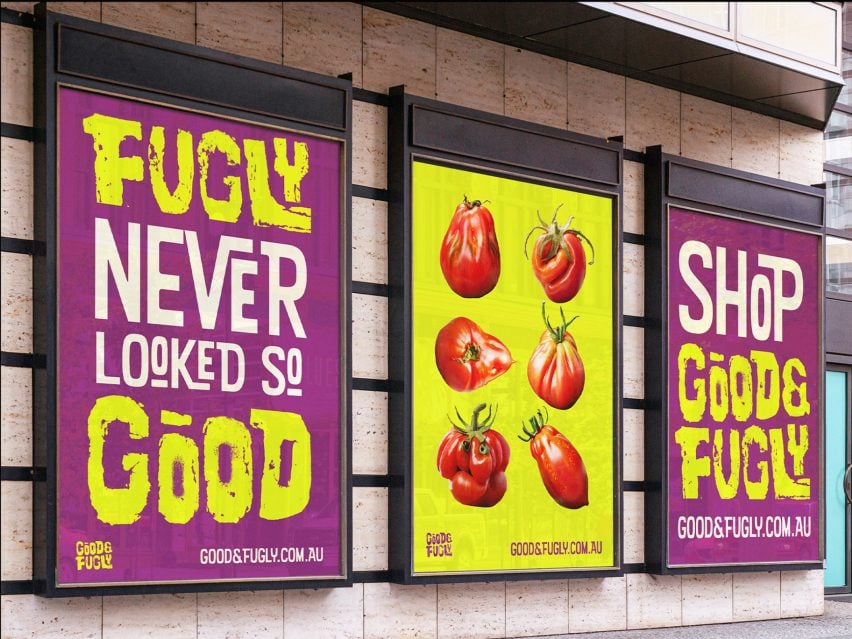
Good and Fugly by Xin Zi Hoo
“Good and Fugly brings fresh and flavourful rejected produce straight from farmers to homes across Australia.
“They sought a brand update that resonated with the unapologetically quirky nature of their fruits and vegetables.
“A distinctive wordmark logo using potato stamps was devised, capturing the quirky essence of the brand.
“This wordmark was combined with vibrant colours, witty copywriting and engaging imagery showcasing the ‘fugly’ fruits, all working together to boldly convey the brand’s voice: ‘we’re fugly, so what?'”
Student: Xin Zi Hoo
Course: Bachelor of Communication Design
Tutors: Dr Jane Connory, Kylie Burnes and Michele Murray
Email: hooxinzi1044[at]gmail.com
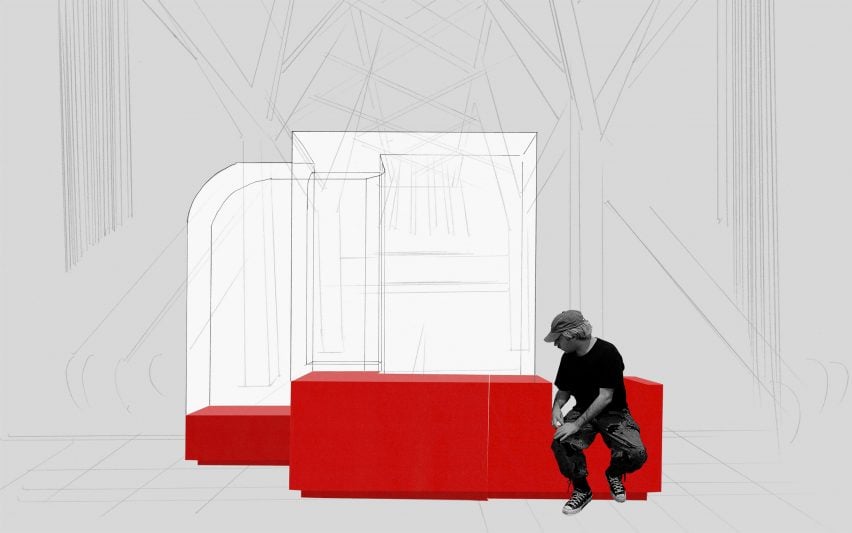
Transports through stuff – vitrine design for artefacts dug during the construction of a new Metro tunnel by Simon Urbini
“Design of a vitrine to display artefacts unearthed during Melbourne Metro tunnel excavation. An invitation to discover and imagine.”
Student: Simon Urbini
Course: Swinburne’s School of Design and Architecture
Tutors: Anna Caione
Email: 9518215[at]student.swin.edu.au
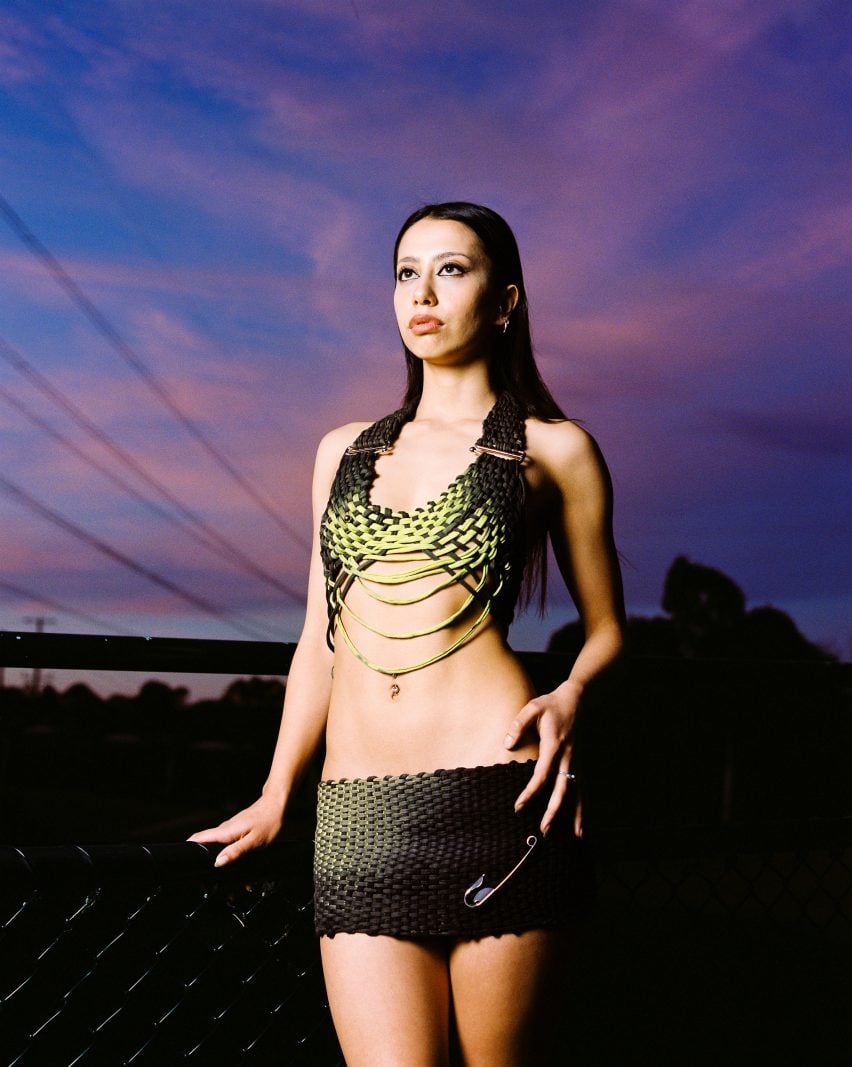
Loomless by Aaron Davis
Loomless, celebrates the creative process, highlighting the unconventional weaving method of fashion designer Lilli McKenzie.
“She utilises recycled yarn, crafted from discarded t-shirt fibres, to fashion vibrant and textural garments which are woven directly onto the body.
“The centrepiece of the book is a garment photographed from start to finish, revealed when worn and modelled on the body.
“The images document her previous pieces and track the evolution of her unique style, emphasising the meticulous handcrafted nature of her work.
“This body of work serves as a tribute to creativity and the revolutionary approach of one designer towards sustainable garment manufacturing. Garments woven and photographed on Wurundjeri land.”
Student: Aaron Davis
Course: Bachelor of Communication Design (Photomedia)
Tutors: Morganna Magee and Dr Kate Roberston
Partnership content
This school show is a partnership between Dezeen and Swinburne University of Technology. Find out more about Dezeen partnership content here.

